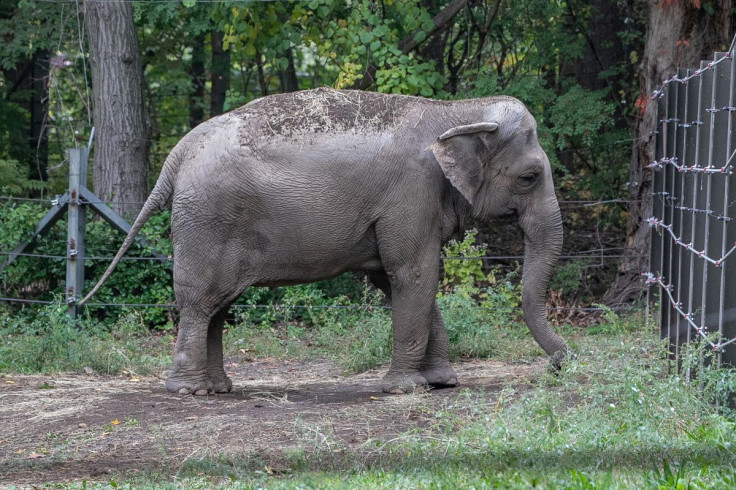Can Dogs Be Pets, N.Y. Judge Asks Lawyer Trying To Free Happy The Elephant

Would granting a female elephant some of the same rights as humans mean people could no longer keep dogs as pets?
That was among the questions that judges on New York state's top court during arguments in Albany on Wednesday asked a lawyer for an animal rights group that is pushing to free Happy the elephant from the Bronx Zoo.
The 51-year-old Asian elephant has called the venerable New York City zoo home since 1977. Happy has been kept apart from other elephants in a one-acre (0.4-hectare) enclosure at the zoo since around 2006, court records show.
Four years ago, the Florida-based Nonhuman Rights Project began asking New York courts to release Happy to one of two elephant sanctuaries in the United States, saying the animal was being illegally imprisoned.
The group has said that Happy was entitled to habeas corpus, a legal process in which illegally detained people or someone acting on their behalf may inquire about the reason they are being held.
New York's habeas corpus law does not define "person," and the group said Happy should be recognized as one. The Court of Appeals session was meant to address that question, after two lower courts sided with the Bronx Zoo, which maintains that Happy is well cared for.
The judges appeared skeptical of the Nonhuman Rights Project's arguments, with some asking why habeas corpus would apply since the group was seeking to trade Happy's confinement at a zoo for confinement at a sanctuary. Other judges appeared concerned that expanding certain legal rights to elephants could be a slippery slope.
"Does that mean I couldn't keep a dog?" Associate Judge Jenny Rivera asked.
Monica Miller, a lawyer for the group, replied that there is not as much evidence about dogs' cognitive abilities as there is for elephants.
According to a 2006 study, Happy passed a "mirror self-recognition" test, considered an indicator of self-awareness. The animal rights group argues that is among the many cognitive abilities Happy shares with humans.
"Happy is autonomous by scientific proof," Miller told the seven judges. "Elephants high-five each other after they drive off an enemy. They do a halftime football kind of dance. They're just a really special, unique species."
The Bronx Zoo, run by the Wildlife Conservation Society, has said the group is exploiting Happy without concern for the animal's wellbeing. The judges quizzed Ken Manning, a lawyer for the zoo, on whether habeas corpus would apply to zoo animals if there was evidence they were being kept in unsuitable conditions.
Manning said that it might, but that zoo animals were "highly regulated" and Happy's conditions complied with the law.
"There's got to be an illegal detainment in order for the remedy to even apply at all," Manning said, referring to habeas corpus. "Here there's been no illegal detainment."
Happy's longtime companion, Grumpy, was attacked by two other elephants in the early 2000s. Grumpy never recovered from the injuries and was euthanized. Another of Happy's companions, Sammie, later died.
The zoo's other elephant, Patty, lives in an adjacent enclosure separated from Happy by a fence. The zoo has said the two interact with each other.
Prior efforts to grant legal personhood to animals, including chimpanzees, have been unsuccessful.
The Court of Appeals did not specify when it will rule.
© Copyright Thomson Reuters 2024. All rights reserved.





















